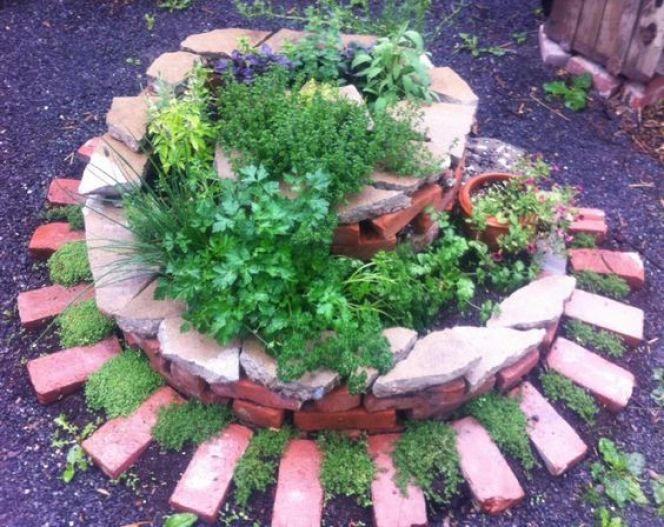How to plant spiral herbal gardens correctly – list with suitable plants and planting plans
Herbal Spiral gardens are not only an attractive and effective way to have always fresh and tasty herbs at hand but also a wonderful example of the application of permaculture principles. The spiral shape optimally utilizes vertical and horizontal surfaces. This makes it possible to cultivate a variety of plants in a small space to create a stable and healthy ecosystem. We’ll show you today how to properly plant a herbal spiral to provide nourishment to the nose and palate.
15 great ideas of how to use ordinary rocks to add beauty in your garden
The spiral motif from nature can be found in the art and architecture of many cultures – in the form of rolled up leaves, tendrils, as a representation of flowering plants, snail shells, etc. Even forms of movement can often be represented in the form of a spiral: air, water vortex but also spiral galaxies, which belong to the most beautiful structures. This is perhaps the reason why herbal spirals fascinate people in some way.
The herb snail in the garden creates its own microclimate. The tip of the spiral is mostly oriented to the south. This is the sunniest and driest place, regardless of the type of soil. He gets a lot of sunshine during the day and rainwater flows off quickly. The summit is also the most exposed to the negative weather conditions, wind and frost.
30 Amazing DIY ideas for decorating your garden uniquely
Check-in following images great inspiration on how to plant spiral herbal gardens correctly




















Images via: Pinterest







3 comments
[…] How to plant spiral herbal gardens correctly – list with suitable plants and planting plans […]
[…] tired of inventing new forms of planting. And here is one of the most interesting and easy choices. Spiral flower planting allows you to combine different kinds of plants into one […]
[…] leaves like palms and beautiful yellow flowers that have a purple color in the center. Although herbal, the okra blossoms are an impressive sight, as its flowers resemble those of the hibiscus with […]
Comments are closed.